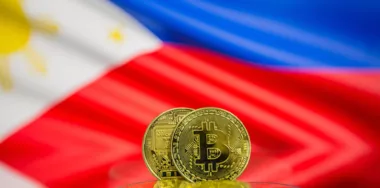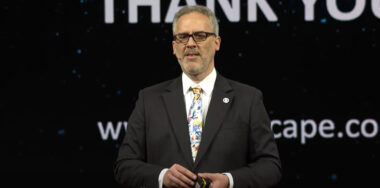The vision of national and regional data ledgers built on the Bitcoin blockchain has been around for a while. In recent times, it has become more apparent that it’s going to be a developing country that will pioneer such a system, and according to Brendan Lee, the Philippines is in a prime position to leapfrog its peers and become the first country to have a national blockchain-based data ledger.
Lee spoke to CoinGeek Backstage on the sidelines of the Global Blockchain Summit held in the province of Bataan. At the event, he interacted with several key decision-makers in the country, including Governor of Bataan Albert Garcia and the Department of Information and Communications Technology (DICT) Undersecretary Jocelle E. Batapa-Sigue.
Speaking to CoinGeek’s Claire Celdran, Lee revealed that all the officials he spoke to are quite interested and curious about blockchain and its role in the digitalization of the Philippines.
“It’s been a terrific opportunity to put forward the idea that this is not about creating and selling tokens in the marketplace but finding ways to improve government services and to reduce the friction that comes from an antiquated paper-based administration system that’s been in use throughout a lot of the Philippines,” stated Lee, who is the founder of application platform development company Elas.
Lee said Filipino leaders “really do want the country to be a leader” in blockchain adoption, noting that all the officials at the event were open to learning about how their agencies and sectors could leverage the technology to cut costs and improve efficiency.
The Philippines already ranks among the world’s biggest blockchain hubs. The Southeast Asian country is second for digital asset adoption according to Chainalysis data and among the top non-fungible token (NFT) wallet hubs. It has also set the pace with play-to-earn gaming, with blockchain games laymanizing the technology and spurring adoption.
A national blockchain ledger for the Philippines
While the Philippines has been quite receptive to blockchain, the technology is still not widely applied, especially by the government. Lee believes it has to start with small steps and gradually advance to a national data ledger built on Bitcoin.
In his interaction with government officials at the summit, Lee broke down adoption into the smallest steps, which can start with a ledger that simply documents pothole repairs. When citizens take a photograph of a pothole, they log it on the blockchain-based ledger, and the local contractors can bid to repair it.
“I think it’s those kinds of really straightforward examples of ways that this [blockchain] can be used to really improve the state of things is what’s needed,” Lee said.
Once such local projects kick off, it will only be a matter of time before other projects are brought on-chain. And as more government services come to the blockchain, “we can get to a point where we can establish a Bataan-wide regional ledger on the blockchain.” As other regions get onboard and build their regional ledgers, the national government will follow up and build a national ledger that can incorporate all these regional ledgers.
“This means that everything that we build locally stays local and keeps operating in the same way locally, but it’s now tied into the national system. Any national ID, digital cash, and CBDC (Central Bank Digital Currency) that gets issued will be usable within all those systems throughout that national ledger. We can start by fixing potholes, and we can change the future of a nation,” Lee concluded.
Watch: Turbocharging Philippines digitalization via blockchain
New to blockchain? Check out CoinGeek’s Blockchain for Beginners section, the ultimate resource guide to learn more about blockchain technology.










